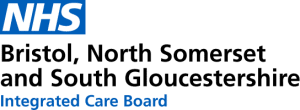What does effective and efficient healthcare navigation look like in multi-specialist GP Practices?
Funding:
BNSSG ICB Research Capability Funding.
What is the problem?
General Practice is under pressure in the UK and is struggling to deliver the number of GP appointments being requested by patients. This is because demographic changes mean that the population is getting older and sicker, increasing demand for healthcare services. At the same time there are sustained reductions in the numbers of practicing GPs, meaning that there are now over 2087 fewer fully qualified GPs in England, and each Practice has an average of 2257 more patients, than they did in 2015, according to the British Medical Association. Whilst many Practices have started taking on a variety of Allied Health Professionals (AHPs) to support their GPs, most patients are still referred to AHPs via their GP, retaining the GP as the bottleneck in the system.
The result is that patients get frustrated with their GP Practice, it takes too long to see the right healthcare professional, and some patients give up and just go to Emergency Department of their local hospital instead. This has a negative effect on patient experience, health outcomes and on the cost of delivering healthcare services.
To address this problem, some practices are starting to change the way care is delivered, using their AHPs more effectively and becoming multi-specialist hubs that are less reliant on a GP to deliver care in every setting. This requires staff (usually the reception team) being trained to navigate patients to the most appropriate professional within the practice for their needs. This may be a GP, but could also be a physiotherapist, paramedic, pharmacist, or other healthcare professional.
However, this is not yet common across general practice and there is little research to understand how to implement healthcare navigation processes in the most efficient and effective way.
What is the aim of the research?
This research aims to understand:
- how healthcare navigation is currently implemented in different GP Practices,
- whether it improves patient access to the right type of care,
- what constitutes best practice in different contexts and
- whether it reduces healthcare access inequalities.
How will this be achieved?
This will be achieved by identifying and recruiting GP Practices which either wish to, or already offer, direct access to AHPs via either ad hoc or formal healthcare navigation. We will then interview GPs, other healthcare professionals, practice managers, receptionists and any other staff involved in healthcare navigation within each practice, to understand how they allocate patients to appointments, why they do it this way and how well it works. We will also talk to patients to understand their lived experiences and how they use the appointment and navigation systems in place.
We will then produce process maps for each practice detailing the healthcare navigation process used and the rationale behind this, along with the benefits and drawbacks of each. We will use this data to develop ‘best practice’ process maps along with guidance about which process options will work best in which situations. These maps will be tested by the practices in the study, either using them to improve their existing processes or implementing new processes if there are no formal processes in place. We will then examine practice data to see if using the best practice healthcare navigation processes improves patient experience scores or health outcomes, and whether it changes the number of appointments, referrals, Emergency Department presentations, or prescriptions per patient. If successful, the new maps, along with implementation guidance, can be used to support other practices implementing healthcare navigation processes.
Who is leading the research?
Dr Mel Smith, Associate Professor in Operations Management, Bristol Business School, University of the West of England.
Further information
About Dr Mel Smith.
For more information or to get involved with this project, please contact bnssg.research@nhs.net.

